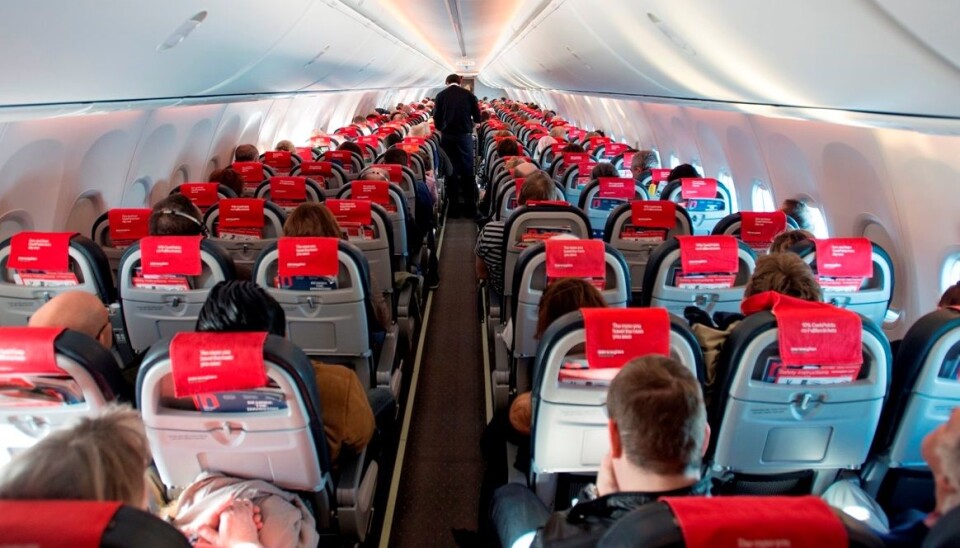An article from Norwegian School of Economics (NHH)

Mergers mean less power to the trade unions
International mergers reduce the influence of trade unions and lead to lower pay for employees, according to research.
Denne artikkelen er over ti år gammel og kan inneholde utdatert informasjon.
Mergers contribute to the companies operating more efficiently, and also save on payroll expenses.
According to Professor Lars Sørgard at the Department of Economics at the Norwegian School of Economics (NHH), the reason is that the mergers put the trade unions in the different countries under pressure.
Played off against each other
"In some countries, the trade unions have strong negotiating power, which has led to them being able to secure good pay conditions," Sørgard says.
"However, the problem is that most of the trade unions are organised nationally, which the company takes advantage of when it merges with a foreign company. The trade unions in the different countries risk being played off against each other under threat that jobs will be transferred if they demand too much," Sørgard explains.

Mergers with foreign companies are therefor a big dilemma for the trade unions. If they make too tough demands in wage negotiations, they know that this could result in jobs being lost to the foreign branch of the company.
Using data from a large number of companies in a range of different industries, Sørgard has looked at the consequences of international mergers together with three colleagues.
Unable to cooperate
The results show that it is employees in the strongest unions who have the most to lose from international mergers.
The study is based on data from the USA, but the researcher believes that the same tendency will apply elsewhere.
"In Norway, the unions are even stronger, so, based on that, you would think that the consequences could be even greater here," says Sørgard.
One possible solution to the problem for the unions would be more international cooperation, but he does not think that will happen.
"They have been trying for a long time, but when it comes down to it, the unions are concerned about their members in their own country. It is difficult to proceed beyond general declarations about cooperation."
Lower pay in Norwegian Air Shuttle
The professor believes that the same will happen in companies that establish new branches abroad. He therefore believes that flight crews who work for Norwegian Air Shuttle could be facing tougher times.
The company has now established a base in Thailand, and it also has several branches in Europe.
"It is inevitable that this will lead to a lower pay level. It is one thing that it is cheaper to employ Thai crews, but this will also lead to pressure on the pay of Norwegian crew members. The fact that the company has a branch abroad will affect every single round of wage negotiations in the time ahead. The company can have its cake and eat it too," says Sørgard.
It was revealed earlier this year that Norwegian Air Shuttle crews earn more than employees of its competitor SAS. The economist believes that it is only a matter of time before this situation is reversed.
He says that the basis for the lower pay level in SAS was laid in the 2000s, when the company was restructured and each country became a more independent production unit.
"This made it easier for SAS to play the unions in Norway, Sweden and Denmark off against each other. The company could suddenly threaten to transfer certain operations from one country to another. The same can happen in Norwegian. The union will become less keen to make demands," says Sørgard.
"We should accept"
Sørgard also questions how much effort we should put into maintaining the pay level in Norwegian Air Shuttle and other companies that face competition from foreign labour.
"There is a shortage of labour in Norway. This means that we must ask ourselves whether there is any point in keeping poorly paid jobs."
"In my opinion, we should accept that there are foreign employees who want to work for lower pay," says Sørgard.
Instead, he believes we should focus on other sectors in which there is a need for Norwegian labour, such as health and care services.
"In building and construction and the hospitality industry, we have more or less accepted that foreigners have taken over. I see no reason why the same should not happen in the aviation industry as well," says Sørgard.
-----------------
Read the Norwegian version of this article at forskning.no



































